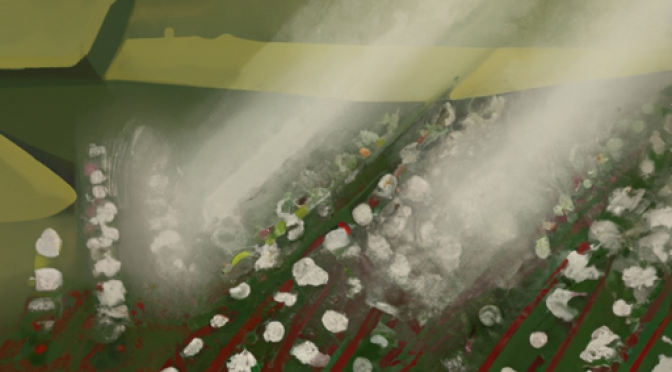Introduction
Organic farming, which emphasizes the use of natural methods and prohibits the use of synthetic chemicals, has gained significant popularity in recent years due to its environmental and health benefits. However, organic farmers often face challenges in maximizing their crop yields without resorting to chemical interventions. This is where artificial intelligence (AI) can play a crucial role in enhancing the productivity of organic farming while maintaining its core principles.
1. Precision Farming
AI technologies, such as remote sensing and satellite imagery, can provide valuable insights into crop health and growth patterns. By analyzing these data, farmers can identify areas of their fields that require specific attention, such as nutrient deficiencies or pest infestations. This enables targeted interventions, such as applying organic fertilizers or deploying natural pest control methods, only where necessary, reducing overall chemical usage.
2. Predictive Analytics
AI algorithms can analyze historical and real-time data, including weather patterns, soil conditions, and crop growth stages, to predict future outcomes. By leveraging this predictive power, organic farmers can optimize their planting schedules, irrigation strategies, and pest management plans. This proactive approach minimizes the need for reactive measures, reducing the reliance on chemical interventions.
3. Crop Monitoring and Disease Detection
AI-powered sensors and drones can monitor crops continuously, capturing high-resolution images and collecting data on various parameters, such as leaf color, moisture levels, and temperature. By analyzing this data, AI algorithms can detect early signs of diseases or nutrient deficiencies, allowing farmers to take timely action. Prompt identification and targeted treatment can prevent the spread of diseases and minimize crop losses, eliminating the need for chemical-based disease control methods.
4. Smart Irrigation
AI-based irrigation systems can optimize water usage by continuously monitoring soil moisture levels and weather conditions. By analyzing these data, AI algorithms can determine the precise amount of water required by each plant, ensuring efficient irrigation. This not only conserves water but also prevents overwatering, which can lead to nutrient leaching and soil erosion. By maintaining optimal soil moisture levels, organic farmers can enhance crop growth without resorting to chemical fertilizers.
5. Weed Management
Weeds compete with crops for resources and can significantly reduce yields. AI technologies, such as computer vision and machine learning, can identify and classify different weed species accurately. This enables the development of targeted weed control strategies, such as precision mechanical weeding or thermal treatments, minimizing the need for herbicides. By adopting AI-powered weed management techniques, organic farmers can effectively control weeds without compromising the organic integrity of their farms.
Conclusion
AI has the potential to revolutionize organic farming by enhancing crop yields without relying on chemical interventions. Precision farming, predictive analytics, crop monitoring, smart irrigation, and weed management are just a few examples of how AI can contribute to sustainable and productive organic agriculture. By harnessing the power of AI, organic farmers can continue to prioritize environmental and human health while meeting the increasing demand for organic produce.

